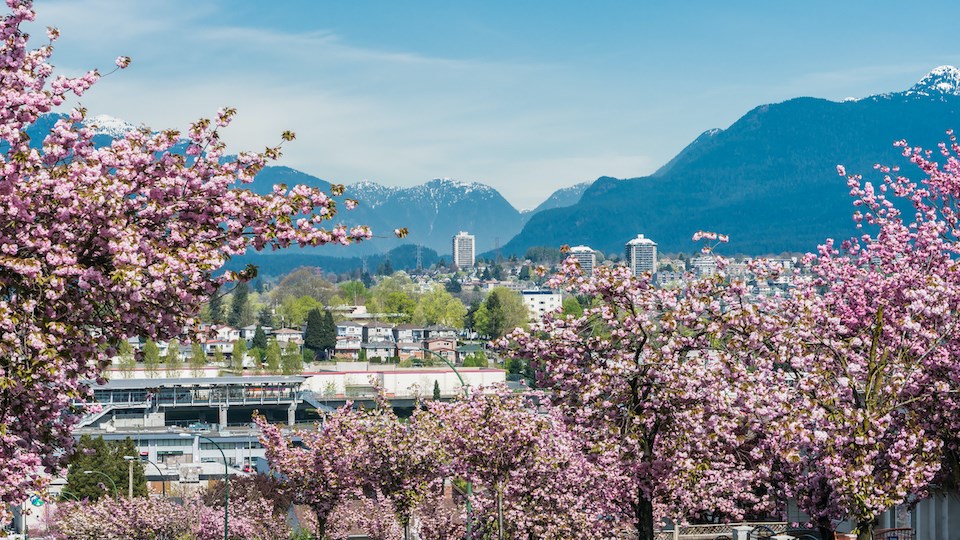Locals looking forward to some warm weather this spring might not want to hold their breath.
While March is known to "come in like a lion," the first week of meteorological spring in Metro Vancouver looks decidedly pleasant, albeit with a stormy kickoff to the month (March 1 saw some lightning and heavy rain for a brief spell).
Heading into the week, Environment Canada is calling for a sunny streak to commence Friday and continue through the weekend into next week. But heading out from there, temperatures may not warm as quickly as one might anticipate for the season.
Meteorologist Derek Lee told Vancouver Is Awesome in a phone interview that Environment Canada is forecasting a La Niña pattern to continue into March, April, and May, which generally means "cooler temperatures for the province."
The cold weather pattern generally means there will be less precipitation which will make for an overall drier spring. "There will be days where you can get a Pacific system as we would in general spring to bring us more moisture," he noted.
"But that amount will be generally less than we would expect from the previous years."
Last spring saw more average precipitation, Lee explains, whereas the year before that was a bit more on the wet side. There is a high-pressure system headed over the Pacific that should bring drier weather. "Its position over the coast will kind of divert the moisture kind of northwards into the Yukon and down back to northeastern B.C."
And while the La Niña pattern doesn't always create drier weather in the Lower Mainland, the meteorologist notes that this year's pattern has ushered the wet weather northwards. In other words, it has changed where the moisture stream is being directed.
"It's not going to be super cold all the time but there could be bursts of Arctic air coming all the way down into the coastline causing temperatures to be below-average," he added.
The spring months are also particularly convective, meaning that the atmosphere is unsettled and there is a greater likelihood of thunderstorms.
Have you ever wondered why thunderstorms are so rare in Vancouver? Find out why they are less common in the city.



